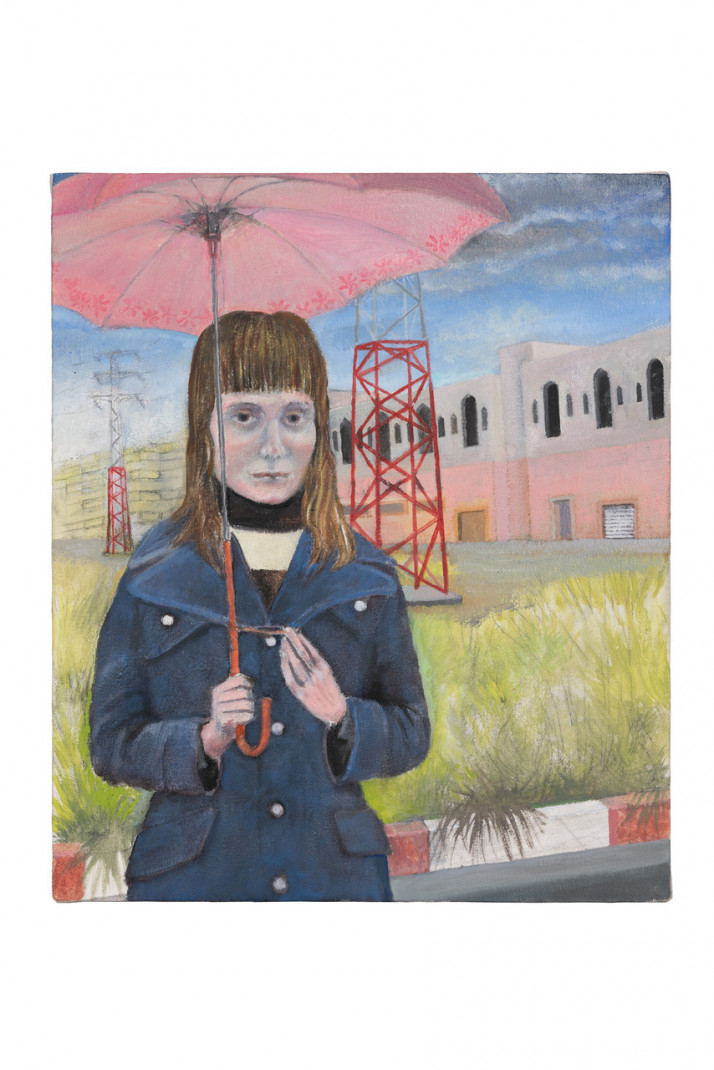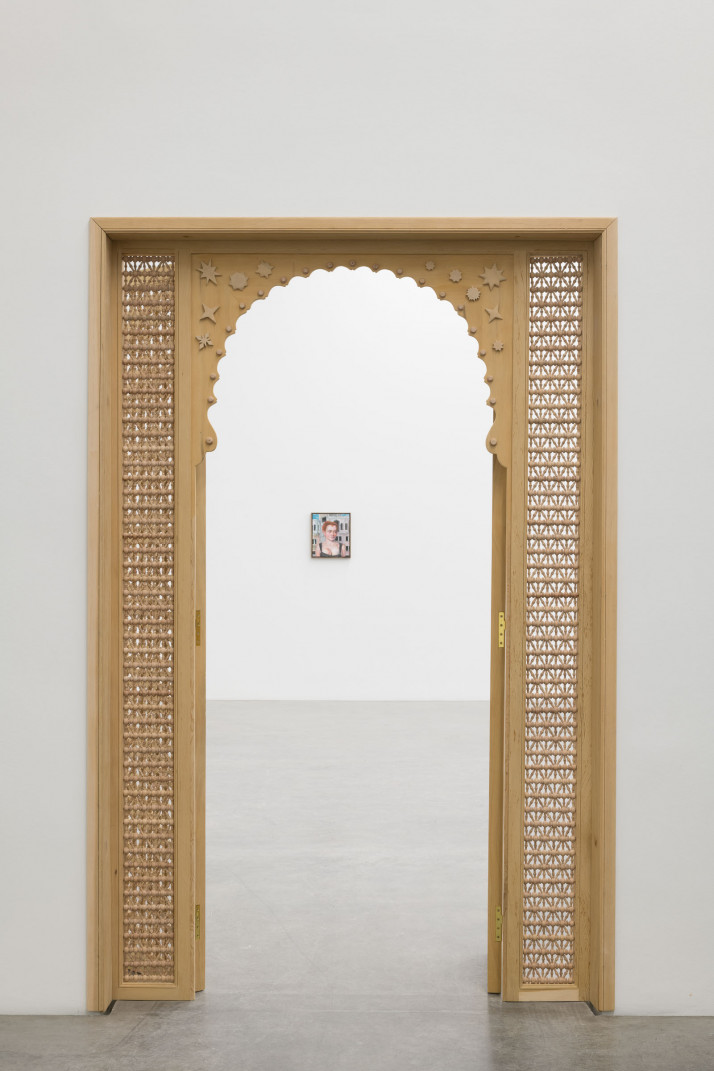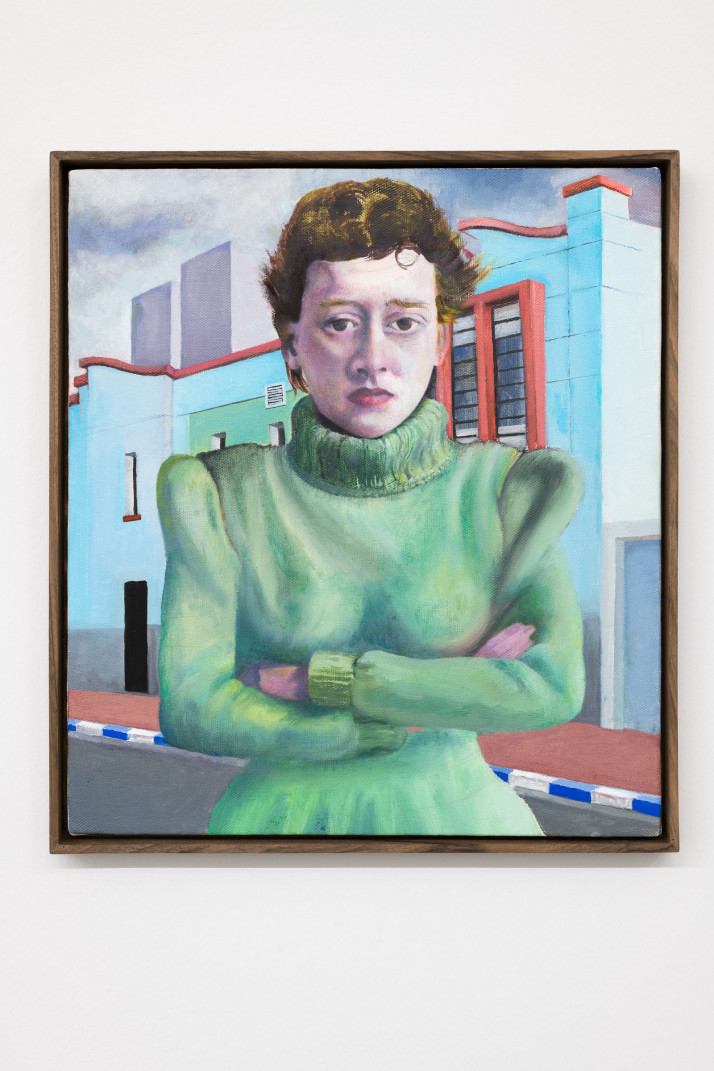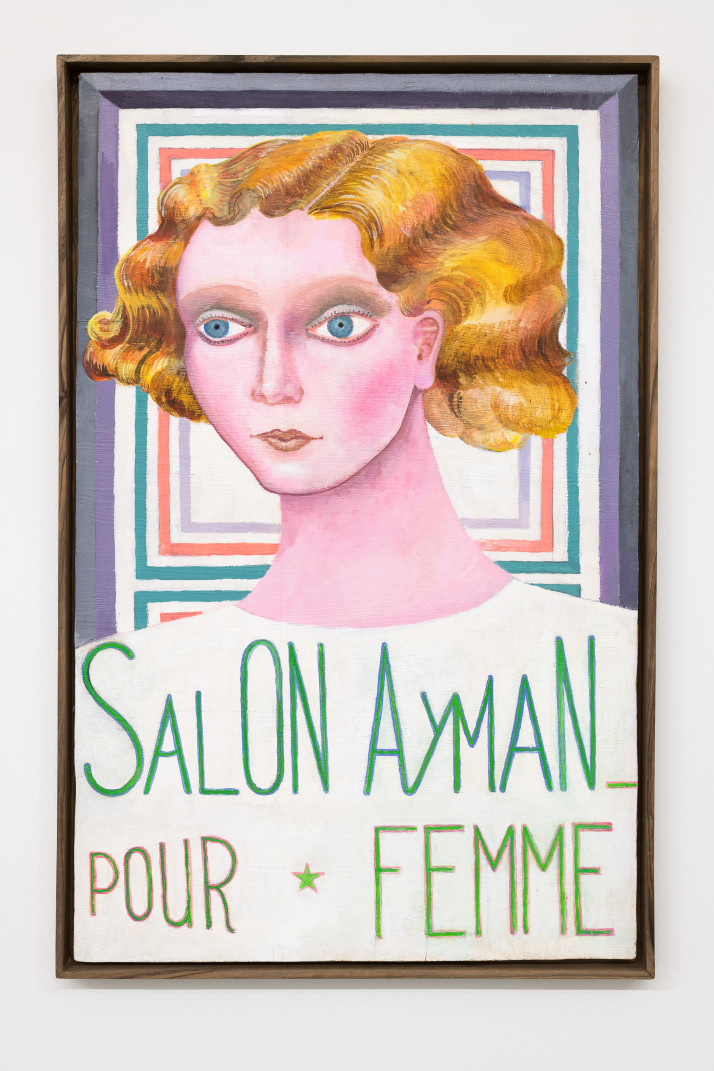Katharina Wulff’s solo exhibition features mostly enigmatic portraits. Each individual stands alone against backdrops of displaced architecture that look as much social realist as it does redolent of film and theatre sets. While some portraits were inspired by the work of GDR photographers such as Sibylle Bergemann, most are the products of invention. Creating an inside and an outside, as well as a threshold one must pass, Wulff has hung her compositions on either side of Moroccan handcrafted, cedar, interior screens. These in-built sculptures divide the gallery space in two and were fabricated by traditional artisans in Marrakesh where the artist now lives. The exhibition, enlivened by cross-currents, has both a concrete part—attaching to real people, histories and tension-laden contexts—and then another abstract unfixed overlaid part, which speaks to the unruly imaginary and the seductive agency of art.
The exhibition’s travelled design and wayward imagery are an aesthetic response to Galerie Neu’s actual building and immediate surroundings, part of a GDR Plattenbau development erected in 1986 and the last of its kind in the neighbourhood. The architecture, with its repeating facades of trapped river pebbles in prefab concrete panels, is a prime example of one-size-fits-all socialist-modernism. Wulff’s use of the same architecture in one of her paintings, behind a woman in the 1980s hungry for self-definition in a German small town, evokes not sweet nostalgia but deep ambivalence. Elsewhere too, the work summons up other traces of the artist’s own East German past, including tangential re-imaginings of her childhood experiences as a ballet student, a makeup artist and hairstylist, and dissident girlfriend of a petty teenage thief. In a profound sense, we all have complex, variegated pasts and live amidst ruins and remnants. How much archaeology we embark on is an individual matter. Regardless, perhaps it is in the imaginary, in daydreams and visions (like those conjured by Wulff’s paintings) where we attempt to reconcile competing truths. Certainly in this notional space we can travel without limitation and take pause, especially if where we came from is not a place to which we can return. Astute viewers will notice Wulff’s work revels in productive anachronism, and a slipperiness about locality. A combination of nuance and stylistic ruptures characterize the artist’s open-minded approach to line, motif, composition and even the application of paint.
The exhibition’s jaunty title borrows appreciatively from author Maxie Wander’s 1977 eponymous hit book of interviews of ordinary women ranging in age from 18 to 92. Wulff pointed out to me that Wander’s book opens mysteriously with the lyrics of an anonymous authored song in which a lover expresses their carnal longing for a woman but also threatens:
If you don’t come,
I’ll pull the knife out of the bread,
wipe the crumbs off the knife
and hit you right in the heart.*
In a sense, the considerable sensual allure of Wulff’s work is also double-edged. When we spoke recently, the artist took pains to note she is not a proponent of decadence, that ‘doing nothing’ but luxuriating in either her work or life has never been her interest. As idiosyncratically attractive as her work can be, it is sometimes also blunt, brute, rough, unfinished, barren, even existentially bare. Underpinning her approach is a defiant refusal to conform, and a creative suspicion of all definitions imposed from the outside.
— Dominic Eichler
*the English translation is the author’s own. Wander’s book states that the song is of Sinti Roma origin. The original German extract reads:
Kommst du nicht,
zieh ich das Messer aus dem Brot,
wische die Krumen vom Messer
und treffe dich mitten ins Herz.
Katharina Wulff
Guten Morgen, du Schöne
01.03.2024 – 14.04.2024



